From November 10th to 11th, Guangdong Pharmaceutical University Vice President Li Jincheng, Dean of School of Traditional Chinese Medicine Fu Nanlin, Vice Dean of the First School of Clinical Medicine Jiang Wengong, Vice Dean of the School of Health Li Guobiao and his party, together with the Vice President of the Malaysian Branch of the China Anti-cancer Association, the Vice President of St. Stamford International Medical Group Lin Daoxuan, the General Manager of St. Stamford Modern Cancer Hospital Guangzhou Lin Xinwei and another party, formed a "Belt and Road" medical delegation and visited St. Stamford Modern Cancer Hospital Guangzhou Malaysian Office, and also consecutively visited the Malaysian GHHS Healthcare and Tong Xin Tang TCM Centre.
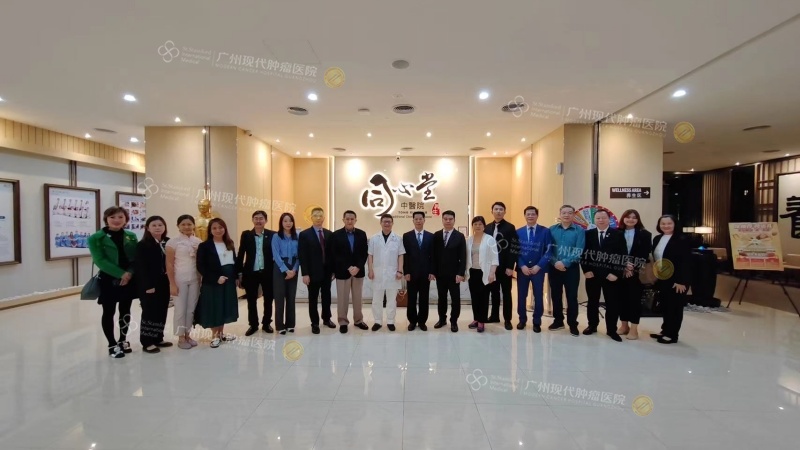
Promote the Popularization of Minimally Invasive Treatment Techniques for Tumors
First stop: visiting GHHS Healthcare
The "Belt and Road" medical delegation visited Malaysia GHHS Healthcare. The chairman and other leaders of the GHHS Healthcare received the group warmly, and the group learned about the basic situation of the Center and visited the environment of the GHHS Healthcare. The two sides had an in-depth discussion on how to popularize and promote minimally invasive tumor treatment technology, how to promote the application of the "Belt and Road" CACA guidelines in Malaysia, and how to promote further cooperation between the two sides.
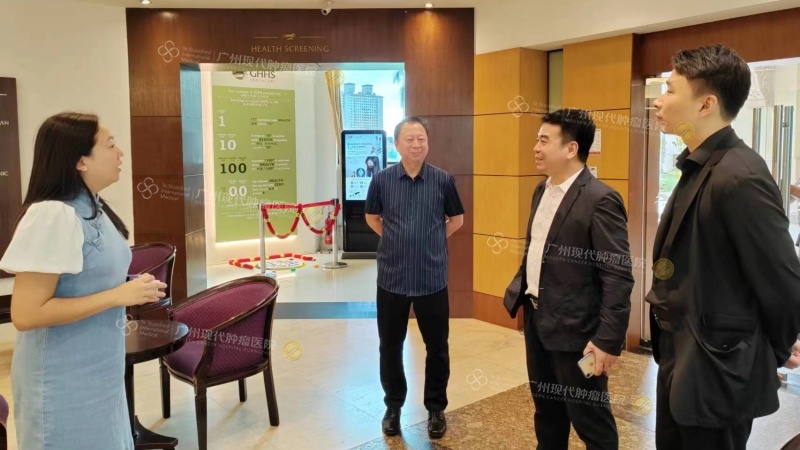
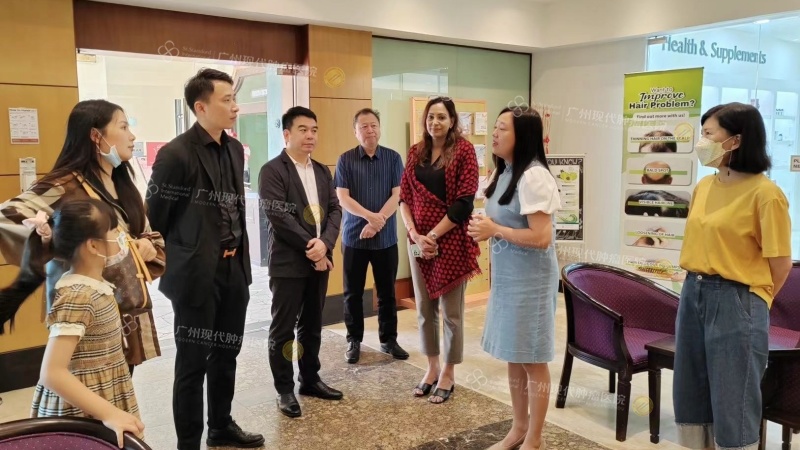
Exchange Center, Breaking Down Medical Barriers Between Two Countries
The second stop: visiting the Malaysia branch office
The Malaysia Office, as the site of the "Belt and Road" Integrated Oncology Training Base of China Anti-Cancer Association of St. Stamford Modern Cancer Hospital Guangzhou in Malaysia, is the link and service center of the medical careers of the two countries. Through the office, the two countries will strengthen their cooperation in talent cultivation, technology exchange, and medical training.
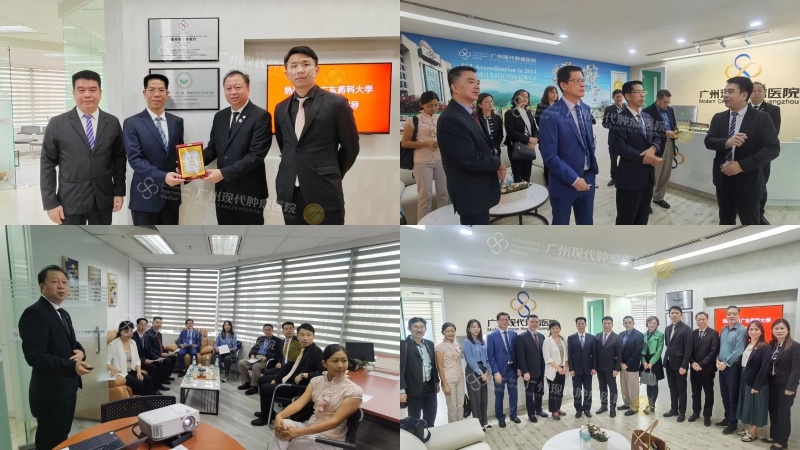
Promoting the Internationalization of Combining Chinese and Western Medicine to Fight Cancer
Third Visit to Malaysia Tong Xin Tang TCM Centre
The president of Tong Xin Tang TCM Centre warmly welcomed the delegation and introduced the hospital has distinct advantages in "Chinese medical treatment, Chinese health care, health care products retailing", etc. China is the birthplace of Traditional Chinese Medicine (TCM), and its profound and far-reaching TCM culture is worthy of our study. We hope that we can strengthen the cooperation between the two sides and jointly promote the development of Chinese medicine culture in Malaysia.
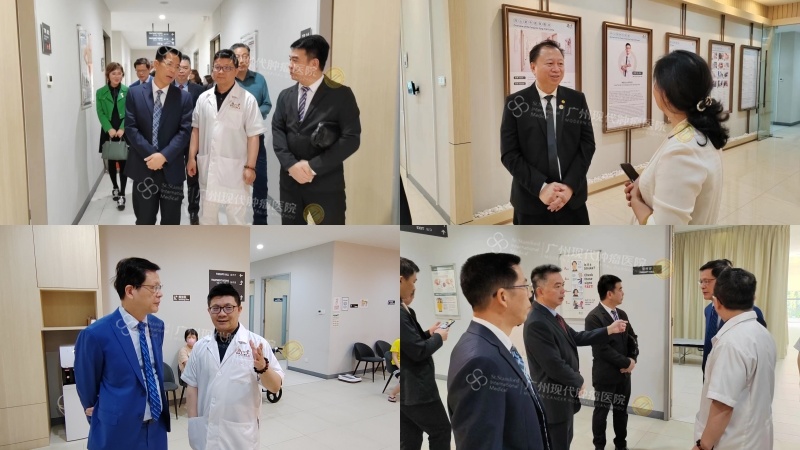
Mr. Lin Daoxuan, Vice President of the China Anti-Cancer Association Malaysia Branch and Vice President of St. Stamford International Medical Group, said: We will strengthen the promotion of Chinese medicine in Malaysia and spread the combination of Chinese and Western medicine anti-cancer treatment to the local community. It is hoped that both parties will cooperate sincerely and work together to promote the comprehensive promotion and popularization of Chinese medicine in Malaysia for the benefit of more patients.
Love Donation, Great Country Sentiment
After the visit, Mr. Lin Daoxuan, President, and Mr. Lin Xinwei, General Manager, donated materials and aid money to the Malaysian Association of Brain Injury Children's Fund. The head of the Malaysian Association for the Love of Children with Brain Injury Foundation said that Modern Cancer Hospital Guangzhou has shown the noble sentiment of "love without borders, medicine without borders", expressing the deep friendship between China and Malaysia, and expressed heartfelt thanks to them for their great love and generosity.
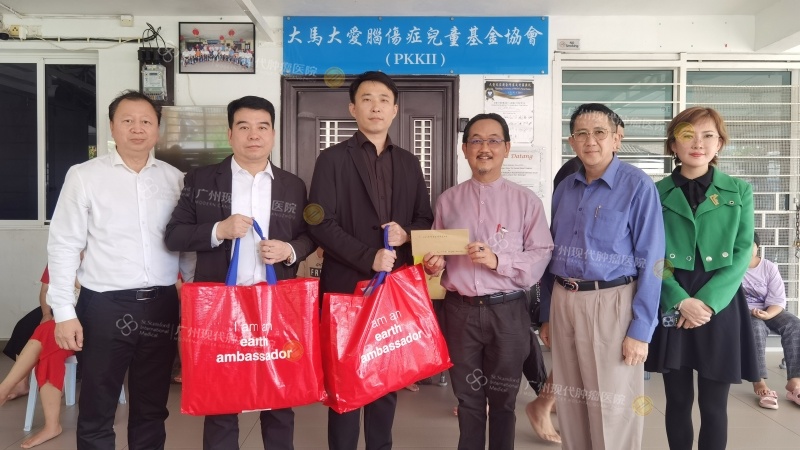
[Donation of materials and assistance to the Association of Brain-Injured Children's Fund of Great Love of Malaysia.]
In the future, Modern Cancer Hospital Guangzhou will, as always, firmly implement the "Belt and Road" oncology integrative medicine to prevent and fight cancer popularize science and education, and promote China's cutting-edge oncology technology and medical advantages to more countries for the benefit of more people.
*Surgery, in addition to the appropriate chemotherapy and radiotherapy, are effective in treating early cancer, but certain patients in late stage of cancer may not be tolerate surgery well as they can be relatively weak. A combination of carefully planned minimally invasive therapy, chemotherapy or radiotherapy can effectively reduce the side effects and discomfort of treatment and may help patient get better efficacy.













 viber
viber